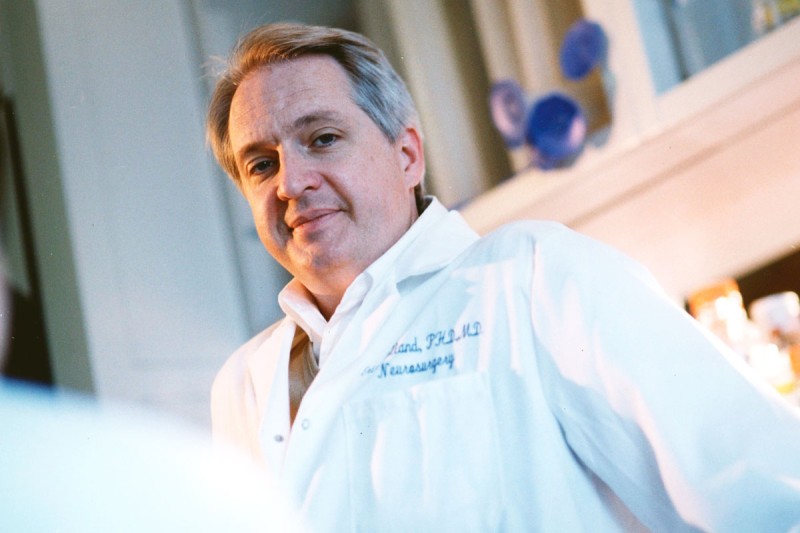
A $10 million commitment from James H. and Marilyn H. Simons through the Simons Foundation will support preclinical initiatives undertaken as part of Memorial Sloan Kettering’s new Brain Tumor Center (BTC).
Established in 2007, the BTC is designed to achieve fundamental new insights into the molecular and cellular properties that drive tumor development and growth. Investigators plan to apply that knowledge to the creation of therapies that target cancer cells and the abnormal signaling pathways needed to maintain them.
With its emphasis on carrying discoveries from the basic and translational research laboratory all the way to clinical trials, the BTC offers the potential for meaningful progress against one of the most challenging forms of cancer.
“We are grateful to Jim and Marilyn Simons for their foresight and generosity in helping to get the Brain Tumor Center off to a strong start,” said Harold Varmus, Memorial Sloan Kettering’s President. “The work to be done through the BTC is highly complex, but absolutely essential, and we welcome the Foundation’s support in moving forward.”
The grant from the Simons Foundation will underwrite preclinical studies of new therapies to confirm that they produce their desired effect in animal models. There currently exists no drug pipeline developed specifically for gliomas, and such preclinical work is an essential step in the design of new therapies for use in humans.
Brain cancer poses a particular challenge to treatment, in part because of the difficulties involved in getting drugs to cross the blood-brain barrier, which physically shields the brain from chemicals circulating in the body. There are also concerns about the potential side effects of drugs that do succeed in entering the brain. The highly precise treatments developed through the BTC will be designed to destroy cancer cells while sparing nearby sensitive tissues — an especially important consideration in dealing with the brain.
Helping to guide the development of the BTC have been three physicians who bring a breadth of expertise to the project: Lisa M. DeAngelis, Chair of the Department of Neurology, Philip H. Gutin, Chair of the Department of Neurosurgery, and Eric C. Holland, a neurosurgeon and member of the Sloan Kettering Institute’s Cancer Biology and Genetics Program who is the BTC’s founding director.
“My colleagues and I are overwhelmed by the confidence that the Simons Foundation has shown in the work of the Brain Tumor Center and in the collaborative spirit that is at its heart,” said Dr. Holland. “This gift provides solid footings for the program and will dramatically accelerate the development of its preclinical and clinical components, which together are key to identifying new therapeutic approaches.”
The Simons Foundation’s support for the Brain Tumor Center extends its commitment to promoting innovation in mathematics, physics, and other sciences — a commitment exemplified by its Autism Research Initiative, which supports wide-ranging neuroscience research with the goal of improving the diagnosis, treatment, and prevention of autism and related conditions. Indeed, work conducted through the BTC into the biology of gliomas — which arise from supporting tissue known as glia — has the potential to shed new light on the role of glial cells in autism and a variety of neurodegenerative and neurodevelopmental disorders.